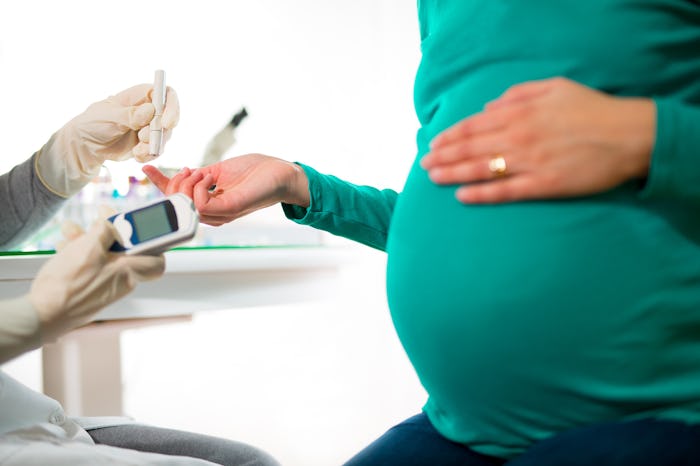Life

11 Things To Know About Having A Baby When You Have An STD
Having a baby can be anxiety-inducing at the best of times, but when there are other factors involved in your pregnancy, such as the presence of a sexually transmitted disease, it can be downright overwhelming. But having a baby when you have an STD is not the end of the world. It is, however, a scenario that needs to be closed monitored by your OB-GYN, so that the proper treatment protocol is followed. This is not the type of thing you want to treat with homeopathic remedies, given that the safety of your baby is dependent on the treatment you choose.
The great thing is that it's standard practice for your healthcare provider to have a discussion about your sexual health and the possibility of STDs when you first begin seeing them for your pregnancy. Being candid and asking lots of questions will help, as will the presence of your partner throughout the process, so that they understand their part in everything. The most important things to understand, though, is that you are not the only one to experience this, and you have no reason to feel ashamed or guilty. But with knowledge in hand, you can absolutely have a healthy and safe pregnancy. Here are 11 things to know about having a baby when you have an STD:
1Honesty Is The Best Policy
During your first appointments with the healthcare provider you've chosen for your pregnancy, you will be tested for a number of STIs, regardless. Still, it's important to be upfront with them at all times, if you suspect something has changed later in the pregnancy. For instance, according to The American Congress of Obstetricians and Gynecologists (ACOG), there are significant risks for the baby when the mother contracts the Herpes virus for the first time, in late pregnancy. Being honest with your healthcare provider is the best way to get the best care.
2Viral STDs Are Different Than Bacterial Ones
According to the Mayo Clinic, viral STDs such as HIV, hepatitis B, and hepatitis C can be treated with antiviral medications to reduce the risk of transmission to your baby, but they cannot be cured outright. This is in contrast to STDs like syphilis, chlamydia, and gonorrhea, which can be cured with the right antibiotics.
3It's Possible That, With The Proper Treatment, You Won't Pass Along Your Disease To The Baby
As mentioned above, according to The Mayo Clinic, STDs such as chlamydia and gonorrhea can be cured with antibiotics. This is important, as both diseases, if untreated, can be passed along to the baby during delivery.
4In Some Cases, You May Be At Risk For Preterm Delivery
Many STIs that go untreated, such as gonorrhea and trichomoniasis, can increase the possibility of preterm delivery, according to Healthy Women.
5Breastfeeding Is Acceptable And Encouraged, In Most Cases
In almost all cases of STD infections, breastfeeding can continue as normal. The only exception is if the mother has HIV, according to the Centers for Disease Control and Prevention (CDC).
6If You Have An Active Infection, You May Need To Be Retested Later In Pregnancy
If one of your screening tests for an STD comes back positive, ACOG noted that you'll need to be treated, obviously, and then retested in three to six months to confirm that the treatment was successful.
7You May Need To Deliver By C-Section
In some cases, such as with an active case of herpes simplex, the preferred method of delivery is via C-section, according to ACOG, to prevent the possibility of infecting the baby in the birth canal.
8Make Sure Your Partner Is Tested And Treated, Too
In the case of STIs like chlamydia, your partner needs to be tested and treated as well, to make sure that you aren't reinfected later in your pregnancy, according to the CDC.
9Not Every STD Is Routinely Screened During Pregnancy
If you believe you may have Bacterial Vaginosis or Trichomoniasis, speak to your healthcare provider. The CDC doesn't recommend routine screening for these infections, but they can have adverse effects on your pregnancy all the same.
10Some Untreated STDs Can Cause Low Birth Weight
As mentioned above, an STD like Trichomoniasis isn't routinely screened during pregnancy, but can have adverse effects on your baby, if left untreated, according to the American Sexual Health Association. This is why, if you experience any symptoms part way through your pregnancy that are indicative of an STD, you should speak with your doctor immediately.
11It's Not The End Of The World
As you can see, there are plenty of scenarios that will not affect your baby at all, when it comes to having an STD during pregnancy. Once you've educated yourself and pursued the appropriate treatment options, you should relax and enjoy your pregnancy.